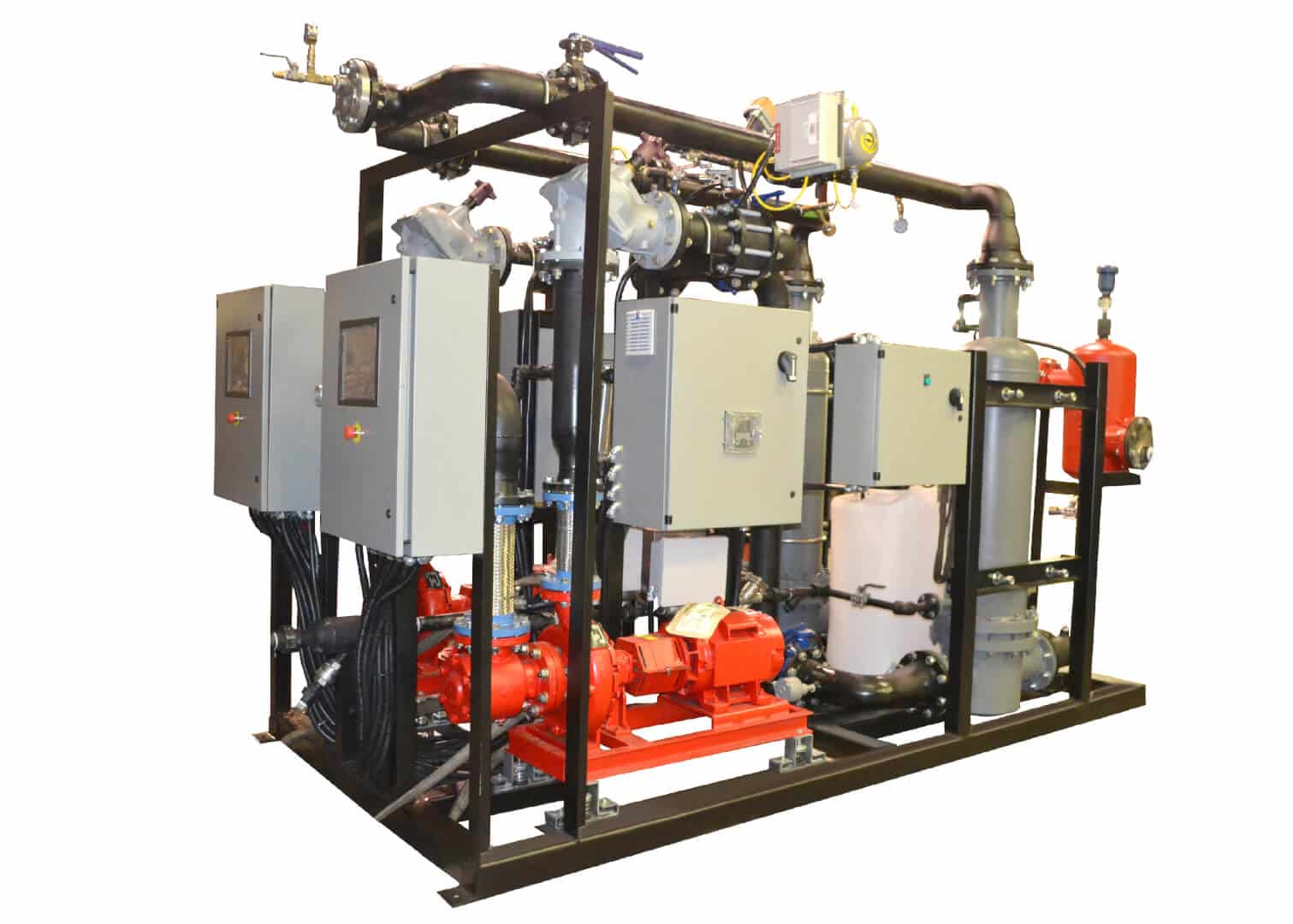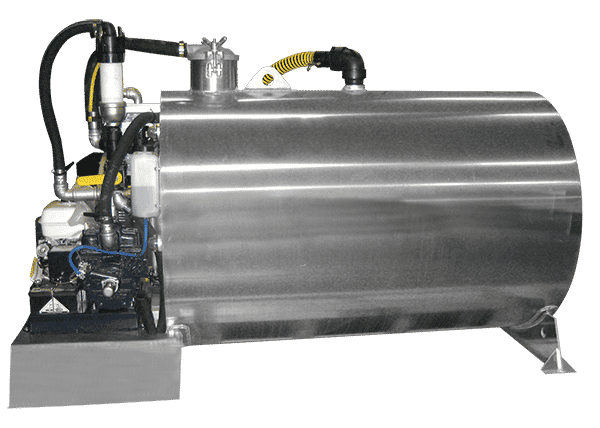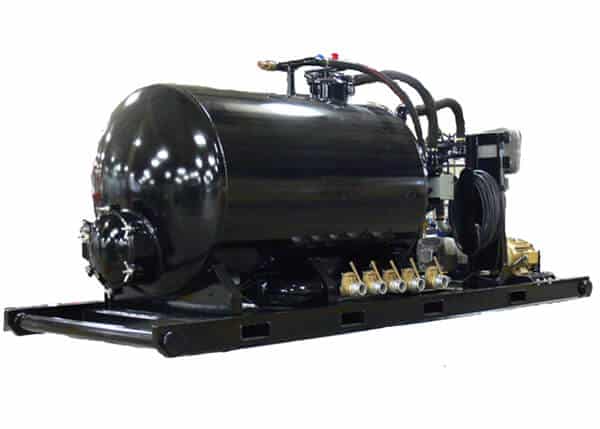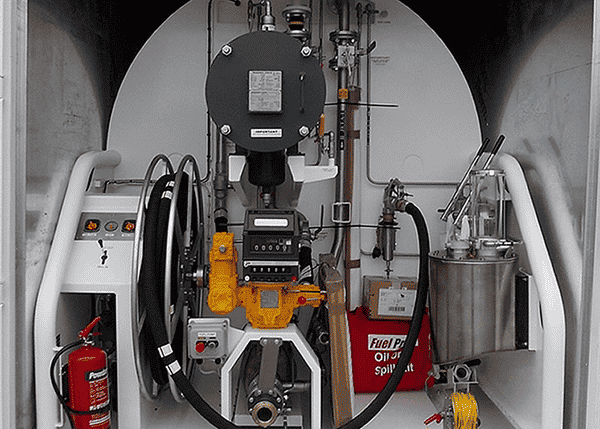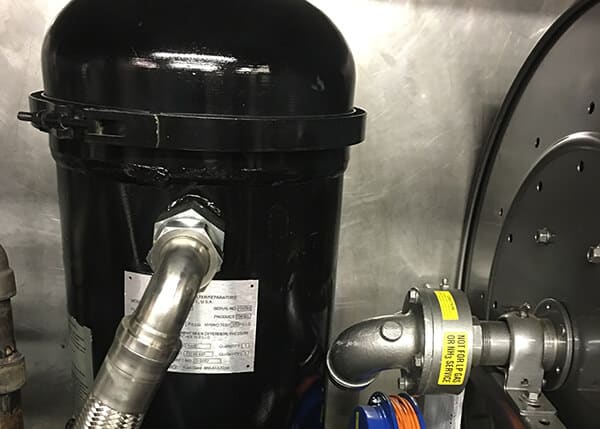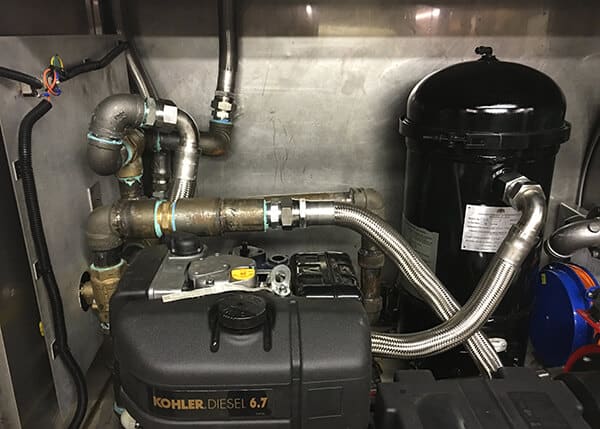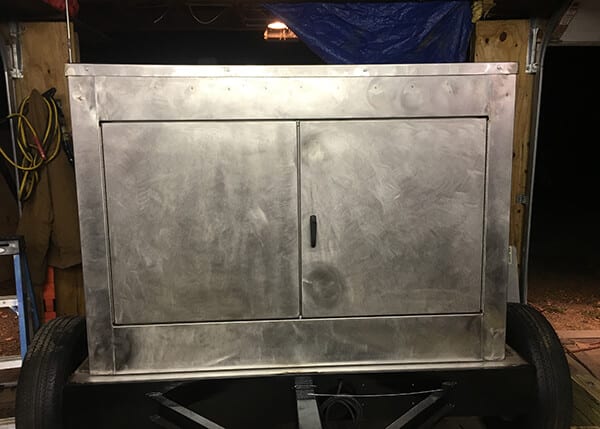FUEL OIL MAINTENANCE & FILTRATION SYSTEMS
For modern industrial engines to operate seamlessly, it’s crucial that the fuel you use is of the highest quality possible. The fuel that powers your industrial engines will have a major influence on engine performance, lifespan of the equipment, reliability, and levels of emissions. To ensure that your industrial engines are properly fueled you need to ensure that you have an efficient fuel supply filtration system in place. A fuel supply filtration system is a critical component in any fuel supply system, helping to attack sources off fuel degradation so they are resolved and your engines operate optimally.
Standby Power System Applications
If your business relies on the availability of a standby power system to keep your company running during an emergency, you will need to ensure that you have a dependable fuel filtration system installed. These systems play a vital role in ensuring that your backup power system is always ready-to-go and that you can rely on it to perform when you need it most. Providing crucial functionality regarding long-term fuel storage as well as providing a maintenance system for your fuel and oil in bulk, installing an effective fuel supply filtration system can help to protect your operations moving forward, ensuring that your standby power system is reliable.
Fuel Gard’s Fuel Oil Filtration, Conditioning, And Maintenance System
Here at Fuel Gard, we provide a dependable fuel oil filtration, conditioning, and maintenance system that can be used for tanks in a range of different applications. Whether your tank is dedicated to diesel or turbine generator sets, it encompasses an oil-fired boiler, or dedicated process heat systems, our Fuel Gard fuel oil filtration, conditioning, and maintenance system is the perfect solution. Our systems can be used for fuel oil that is held in bulk, for long-term storage tanks, and also in both above-ground and underground tanks.
The Necessity For Contaminant-Free Fuel
When you are storing large quantities of fuel for a long period of time it is subject to degradation. Sometimes this degradation can begin as soon as the fuel leaves the refinery. This can have a major impact on the life expectancy of the fuel, with water playing a huge role. Water is entrained in the fuel during the manufacturing process. When the fuel is stored in a tank, water is introduced through vents, and over time the water begins to drop out of the fuel, collecting at the bottom of the tank. When fuel and water meet, bacteria will develop which will feed on the fuel, causing the bacteria to die. This results in a layer of sludge forming at the end of the tank. Failing to filter this fuel will result in your engine filters becoming clogged and your industrial engines failing.
How Our Fuel Filtration System Works
Whether you have a one thousand gallon tank or a fifty thousand gallon tank, here at Fuel Gard, we have a tank and a filtration solution to meet your needs. Regardless of what capacity tank you have, the system works in the same way. Drawing fuel from the bottom of the tank, the system returns this fuel back to the top, via a set of filters that remove any material that should not be present. This material is then returned end to the same tank but at the opposite end. With our fuel filtration system, you can ensure that you have the best filtration performance possible and your fuel is completely free of water, contaminants, and other foreign matter.
Filtrations Systems Designed To Meet Your Needs
At Fuel Gard, we recognize that different businesses have different needs. We offer a range of different filtration system setups that can be customized to the specific needs of your business. For example, an entry-level filtration system will typically include an inlet strainer, positive displacement pump, and a hydrosorb filter to remove water and particulates from the fuel. On the other hand, larger tank farm facilities with more complex requirements can be set up with filter media installed in an ASME vessel rated up to 400 GPM at 150 PSI to allow for automation of the system. These systems come equipped with sensors that monitor activity so the system can be shut down safely when the filter starts to become clogged.
Fuel Treatment
As well as removing particulate and water from fuel, filtration systems also allow for the fuel to be treated with ease. Putting additives in the fuel to kill bacterial growth and to enhance the fuel with cetane stabilizers and boosters will ensure the integrity of your fuel supply. Injected into the return fuel flow of the filtration systems, using a precise measuring pump, the chemicals will mix through the fuel in the tank, ensuring its quality and reliability. Be sure to test your fuels regularly and collect data to improve your use of the filtration system, ensure the right amount of additives are being used and that your fuel’s integrity is protected.
Fuel Gard’s Fuel Filtration System: The Details
Fuel Gard Features:
- Permanent, on-site installation, indoor or outdoor for single or multiple tanks
- Multi-stage, progressive particulate filtration and water removal described below
- Integrated, high-performance 5-350 GPM pump
- Fully automated, flow control and monitoring devices
- PLC based programmable digital controller
- 110% Containment
Progressive Filtration and Conditioning:
- Coarse, straining through 40 mesh stainless steel washable screens
- Pre-filtration through 10 micron disposable media filter
- Final filtration through 5 micron disposable media filter
- Water separator to 5 PPM
- Water Collection chamber with sensor
- Filtration Run Time Display
- Remote iPhone Access for monitoring
- Optional Stainless Steel vessels and fluid circuits
- Optional Stainless Steel Enclosures
- Optional Heated Enclosures

